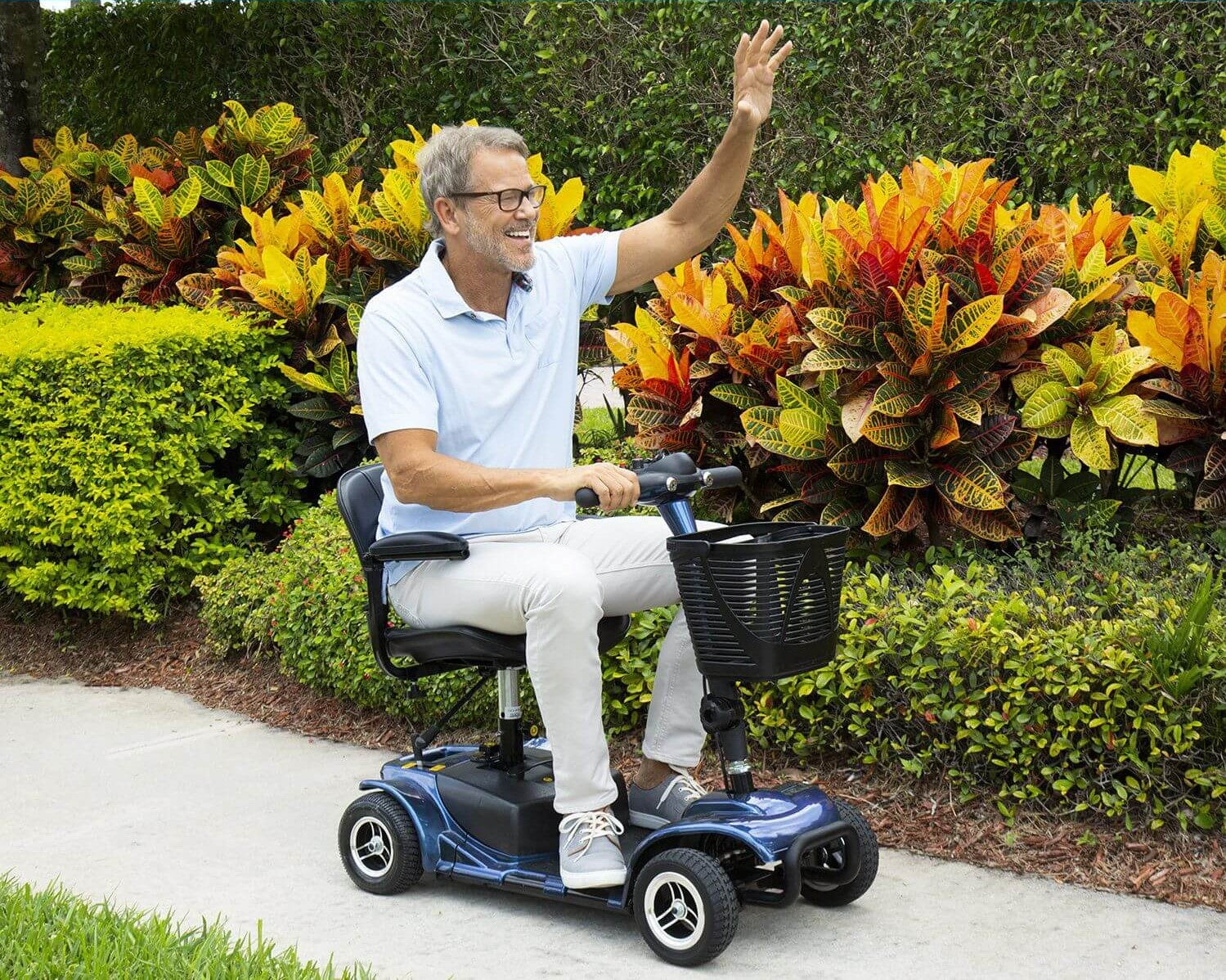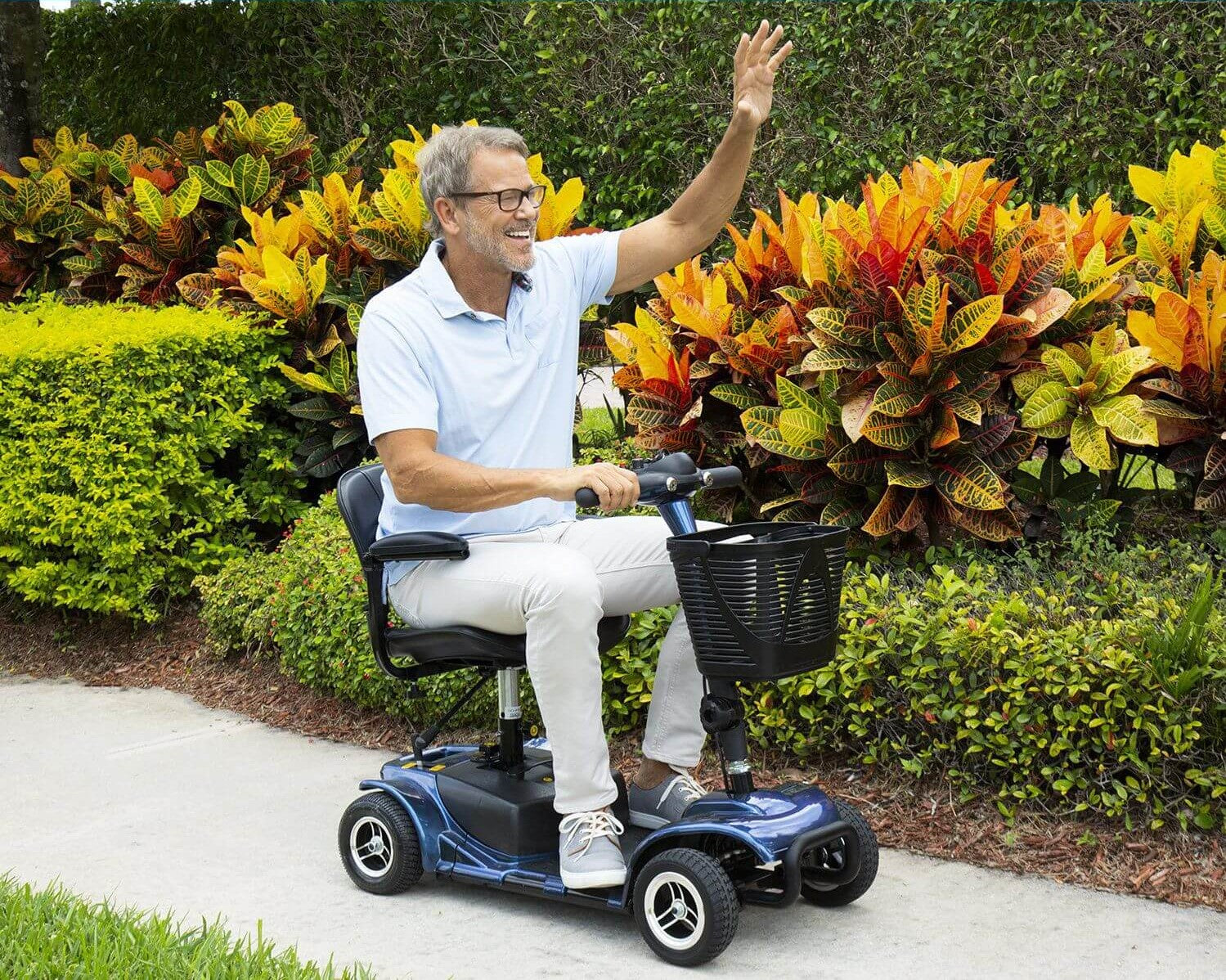In today's fast-paced world, mobility is not just a convenience; it's a fundamental aspect of daily life. Mobility products, including wheelchairs, scooters, and walkers, play a crucial role in enabling individuals to maintain their independence and enhance their quality of life. In this blog post, we will explore the multifaceted benefits of these products, drawing from published articles, papers, and studies to shed light on their significant impact on individuals and communities.
1. Improved Independence
Mobility products empower individuals with mobility challenges to regain their independence. According to a study published in the "Journal of Rehabilitation Research & Development" (2014), assistive devices like wheelchairs and scooters enable people with disabilities to perform daily activities, go to work, and participate in social events, fostering a sense of self-reliance and autonomy.
2. Enhanced Physical Health
Mobility aids can contribute to improved physical health. A paper in the "Journal of Aging and Health" (2015) discussed how walkers and rollators can help older adults maintain their balance, reduce the risk of falls, and engage in regular physical activity, thereby promoting a healthier lifestyle.
3. Greater Social Participation
Maintaining an active social life is essential for mental and emotional well-being. A study published in the "Journal of Health and Social Behavior" (2017) found that individuals who use mobility devices are more likely to engage in social activities, reducing feelings of isolation and loneliness.
4. Increased Community Engagement
Mobility products not only benefit individuals but also contribute to more inclusive communities. A research paper in the "Journal of Disability Policy Studies" (2018) highlighted the role of mobility devices in enabling individuals with disabilities to participate in community activities, volunteer work, and public events, fostering a more diverse and vibrant society.
5. Economic and Employment Opportunities
Access to mobility products can open up employment opportunities for individuals with disabilities. An article in "Disability and Rehabilitation: Assistive Technology" (2019) discussed how assistive devices can help individuals with mobility limitations access and maintain jobs, contributing to their financial independence and reducing the burden on social support systems.
6. Improved Mental Well-being
Mobility aids not only enhance physical health but also positively impact mental well-being. A study published in the "Journal of Applied Gerontology" (2020) found that using mobility devices can boost self-esteem and reduce symptoms of depression in older adults, emphasizing the holistic benefits of these products.
7. Accessibility for All
The presence of mobility products in public spaces promotes inclusivity and accessibility for everyone. A research article in the "Journal of Universal Access in the Information Society" (2021) discussed the importance of universal design principles, ensuring that mobility aids can be used comfortably by individuals of all ages and abilities.
Conclusion
Published articles, papers, and studies consistently highlight the wide-ranging benefits of mobility products. These devices are not merely tools; they are instruments of empowerment, enabling individuals to lead independent, healthy, and fulfilling lives while fostering more inclusive communities. By recognizing the vital role that mobility products play, we can work towards a society where mobility and accessibility are readily available to all.


